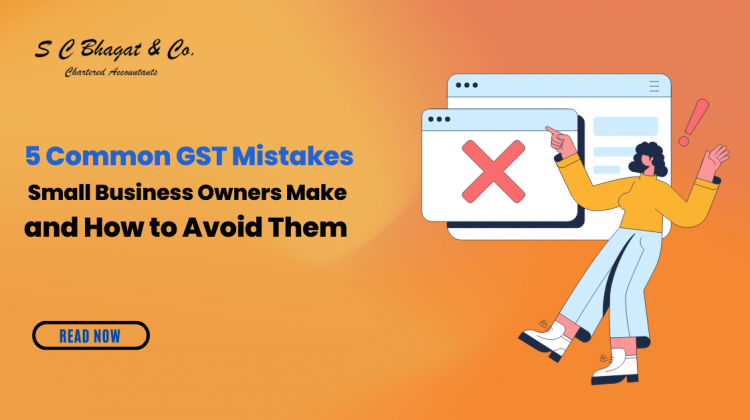Small business owners often have a lot on their plates, from managing finances to hiring employees and keeping up with daily operations. One area that can be particularly challenging is navigating the complex world of GST (Goods and Services Tax). GST is a value-added tax that is levied on most goods and services sold for domestic consumption. While GST can be a valuable source of revenue for the government, it can also be a source of confusion for small business owners. In this article, we will highlight five common GST mistakes that small business owners make and provide tips on how to avoid them.
Mistake #1: Not registering for GST when required
One of the most common mistakes small business owners make is failing to register for GST when required. If your annual turnover exceeds $75,000, you are required to register for GST. Failure to register can result in penalties and fines. It is important to keep track of your turnover and register for GST as soon as you reach the threshold.
Mistake #2: Failing to charge GST on taxable supplies
Another common mistake is failing to charge GST on taxable supplies. If you are registered for GST, you are required to charge GST on all taxable supplies, including goods and services. Failure to do so can result in penalties and fines. It is important to understand what is considered a taxable supply and to charge GST accordingly.
Mistake #3: Not keeping accurate records
Keeping accurate records is essential for GST compliance. Small business owners often make the mistake of not keeping detailed records of their transactions. This can make it difficult to prepare accurate GST returns and can result in errors and penalties. It is important to keep track of all invoices, receipts, and other financial documents.
Mistake #4: Failing to submit GST returns on time
GST returns must be submitted on time to avoid penalties and fines. Small business owners often make the mistake of not submitting their GST returns on time, which can result in penalties and interest charges. It is important to keep track of the due dates for GST returns and to submit them on time.
Mistake #5: Not claiming input tax credits
Input tax credits can be claimed for GST paid on business expenses. Small business owners often make the mistake of not claiming input tax credits, which can result in paying more GST than necessary. It is important to keep track of all business expenses and to claim input tax credits on GST returns.
Conclusion
Navigating the world of GST can be challenging for small business owners. However, by avoiding these common mistakes, you can ensure that you stay compliant with GST regulations and avoid penalties and fines. Remember to register for GST when required, charge GST on taxable supplies, keep accurate records, submit GST returns on time, and claim input tax credits.
FAQs
- Do I need to register for GST if my turnover is below $75,000?
- No, registration is only required if your annual turnover exceeds $75,000.
- Can I claim input tax credits for personal expenses?
- No, input tax credits can only be claimed for GST paid on business expenses.
- What happens if I don’t submit my GST returns on time?
- You may be subject to penalties and interest charges.

